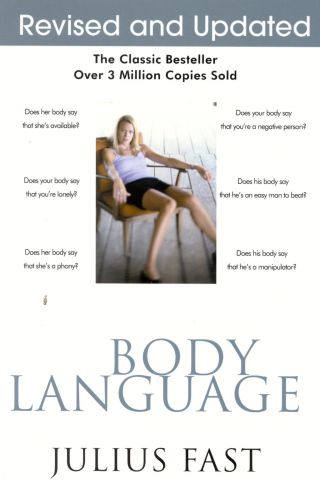
When I was a kid, my friend Tim Fast had a dad whose job allowed him to be home a lot.
- It was strange to me ... and wondrous.
The Fasts were not rich and he certainly worked hard, but Mr. Fast did not have to get up every day to go to an office like my father and grandfather did in the early 1960s.
An Unusual Profession:
Tim's dad was the first person that I ever met who made a living from writing. It was a completely awesome discovery and I am still grateful that I had the chance to see it close up. Imagine, living life on your own terms, writing about things that interest you, and getting paid to do it!
No boss. No clock. No grind.
Yet, my best memories of Julius Fast, who everyone called Julie, were not of his writing but of the world that he and his wife Barbara created around their family. It was impressionistic to an eight-year-old.
(Of course the adult writing this piece knows that Mr. Fast had deadlines and pressure, but for a young boy, such things were not part of the equation.)
What Are Adults?
Julie was a rare multidimensional person, intellectual, accomplished author, fun dad, craftsman, and artist. And I watched, appreciating his creative, loving mind that was my source for some of the answers to the biggest childhood mystery of all: what are adults?
Julie was tall and intelligent, soft spoken, but authoritative. He loved his life...his art...his wife...his kids.
I remember cocktail parties with adults talking about books, ideas, leftist politics, civil rights and yes, feminism. My mother was toe to toe in the conversations; she has that kind of mind. Voices were sometimes raised, but never with repercussions. My father, the haberdasher, was a closet intellectual but because of dyslexia, learned from people rather than from books. He was intimidated by Julie, yet he was part of the mix, and held his own.
An Incubator for the Soul:
The Fast house was so filled with life, the imaginations of Julie and Barbara's kids, art everywhere. When we were hungry, Mr. Fast would cook for us. It was like some warm incubator for the soul. And I ate it up!
Julie was the first person I met who did not believe in God. It wasn't like it was a question; he just thought it was a ridiculous notion. He believed the human species would grow out of it one day. And, despite telling me that he was an atheist, Julius Fast had a living spirit that moved me to want to write as well.
He was an artist and craftsman, who painted for fun, and loved photography. Then there was that vacation with Julie, Barbara, the kids and their dog Poopsie. They had a summer cottage on Shelter Island in New York, which Julie renovated almost single-handedly.
Julie would carry a camera, and the shots from that 1962 beach vacation would stay in my mind to this day, all artistically framed. I remember a shot of seven-year-old me frolicking on the beach, and one of a tween Melissa Fast lying among daisies, just as if she was part of spring eternal.
When the Fasts and my parents became neighbors and Tim and I became friends, Julie already had a steady and varied writing career. He won the first Edgar Award from Mystery Writers of America for a novel written while he was in the Army during World War II. His nonfiction works addressed psychological issues, including sexuality. But he wasn't really famous...yet.
When Body Language came out in 1970, Julie, my friend Tim's dad, become a celebrity. "Body Language" was not a term in use before the book, which became a national hit.
Mr. Fast went on TV talk shows and spoke on the radio, explaining his concept of how one's body signals emotions and thoughts. But more importantly to a young boy, his way of life became further justified to me.
For a young child all of this was an intangible.
Teaching by Example:
Julie Fast was not my friend or even my mentor. He was simply my friend's father who taught us, by example, how to live a fun and intellectually inspired life. The coolest thing, and the answer to the mystery, was that he was still completely accessible and normal.
I imagined that a famous writer must be too smart to talk to, or just not interested in the things that the rest of us cared about. Not so. I learned that there were many ways to be happy, and to apply yourself. And, that the box was much bigger that I thought.
Even as I write these words, I think of Julius Fast (who died in 2008), as one of my spiritual guides. Thank you Julius Fast for your wit, kindness, interest in young, annoying kids, and for writing books that made people think—including me.
Your memory is a blessing.
-------------------------------------------------------------------------------------------------
Research Assistant, Gabriel Banschick
For more on The Intelligent Divorce & Further Unorthodox Advice on Marriage, Relationships and Parenting:
Books on Kindle: The Intelligent Divorce (I & II)
Books on Amazon: The Intelligent Divorce (I & II)
Twitter: twitter.com/MarkBanschickMD
Website: www.TheIntelligentDivorce.com
Online Parenting Course: www.FamilyStabilizationCourse.com
Radio Show: www.divorcesourceradio.com/category/audio-podcast/the-intelligent-divorce
Video: www.youtube.com/watch?v=HFE0-LfUKgA
Newsletter Sign Up: here !




